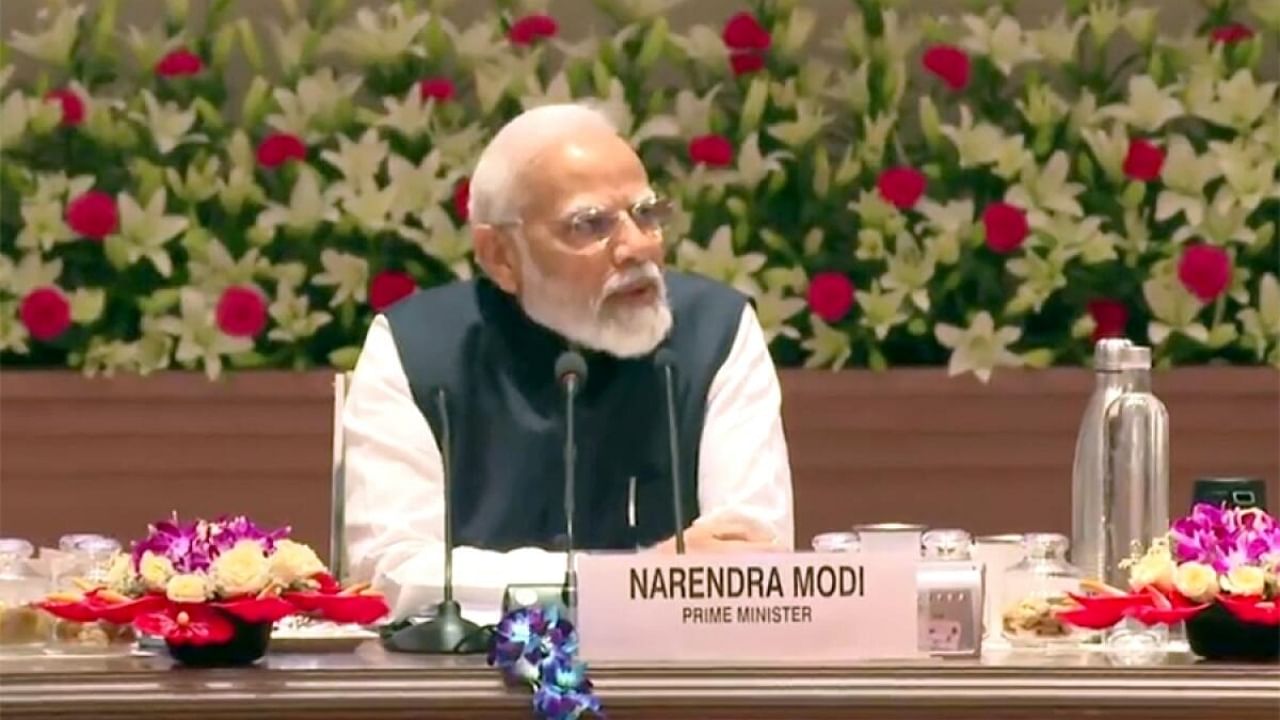
India has sent out a message to China and Pakistan by choosing “respect for sovereignty and territorial integrity” as a central theme for the Shanghai Cooperation Organisation’s 22nd summit, which it has decided to hold virtually on July 4 next.
New Delhi accuses both China and Pakistan of infringing on the sovereignty and territorial integrity of India. The choice of themes for the SCO summit, however, also subtly signalled that while India had not joined the western countries in condemning Russia in the past 15 months, it had not endorsed the former Soviet Union nation’s military aggression against Ukraine.
Prime Minister Narendra Modi will chair the virtual summit of the SCO on July 4. Chinese President Xi Jinping, Pakistani Prime Minister Shehbaz Sharif and Russian President Vladmir Putin are among the leaders, who are expected to join him through video-link.
India took over the chairmanship of the SCO from Uzbekistan during the eight-nation bloc’s last summit at Samarkand in the Central Asian nation in September 2022.
The Ministry of External Affairs (MEA) on Tuesday formally announced that the summit would be held in virtual format on July 4, with the theme being ‘Towards a SECURE SCO’. The ‘SECURE’ acronym, coined by Modi at the 2018 SCO Summit, stands for Security; Economy and Trade; Connectivity; Unity; Respect for Sovereignty and Territorial Integrity; and Environment, the MEA stated in a press release issued in New Delhi.
The Modi government was preparing to host the leaders of the SCO nations as well as the observer countries for an in-person summit in New Delhi. It was however difficult to ensure the physical attendance of Putin and Xi as they were also among the leaders expected to visit New Delhi for the G20 summit, which would be hosted by Modi in New Delhi on September 9 and 10. It was also difficult for Uzbek President Shavkat Mirziyoyev to visit New Delhi for the SCO summit as he would seek re-election in polls scheduled to be held in early July.
Sharif’s visit to India for the SCO summit was also unlikely in view of the political turmoil in Pakistan. Besides, the visit of Pakistani Foreign Minister, Bilawal Bhutto Zardari, for an SCO meeting convened by his counterpart in the Government of India, S Jaishankar, in Goa earlier this month turned into a war of words between the top diplomats of the two neighbouring nations on the issue of Jammu and Kashmir (J&K) and cross-border terrorism.
New Delhi accuses Pakistan of illegally occupying parts of India’s territory in J&K. It also alleges that the China-Pakistan Economic Corridor passes through the territory of India under the illegal occupation of Pakistan. India’s boundary dispute with China came under renewed focus after the Indian Army had to deploy additional troops along the Line of Actual Control (LAC) – the de facto boundary between the two nations – after the communist country’s People’s Liberation Army made an aggressive move in April-May 2020 to push the line westward into the territory of India. The stand-off triggered by the Chinese PLA’s aggressive moves and the Indian Army’s bid to counter them could not be completely resolved so far, although both sides mutually agreed to withdraw front-line troops from some of the face-off points along the LAC.
India, according to the sources, deliberately stressed on respect for sovereignty and territorial integrity in the agenda of the SCO summit as it wanted to convey a message to China and Pakistan.
Apart from inviting the leaders of the SCO member nations – China, Russia, Kazakhstan, Kyrgyzstan, Pakistan, Tajikistan and Uzbekistan – for the virtual summit, India also invited the presidents of the bloc’s observer countries, Iran, Mongolia and Belarus, but not Afghanistan, currently being ruled by the Taliban. Serdar Berdimuhamedow, President of Turkmenistan, has also been invited as the guest of the chair. The heads of the SCO Secretariat and the SCO Regional Anti-Terrorist Structure will also be present in the virtual summit.
Russia and China floated the SCO between 1996 and 2001 as a strategic counterweight to NATO, led by Europe and the US. India and Pakistan formally joined the bloc in 2017.
